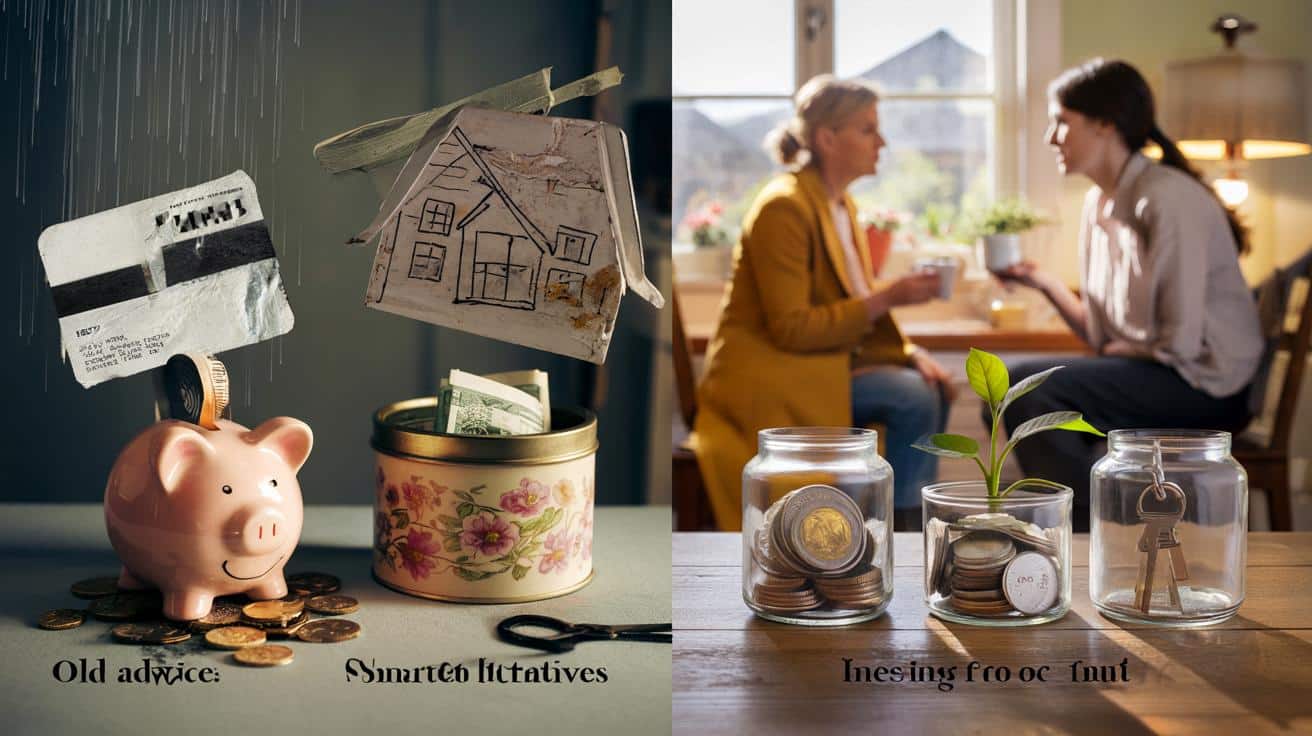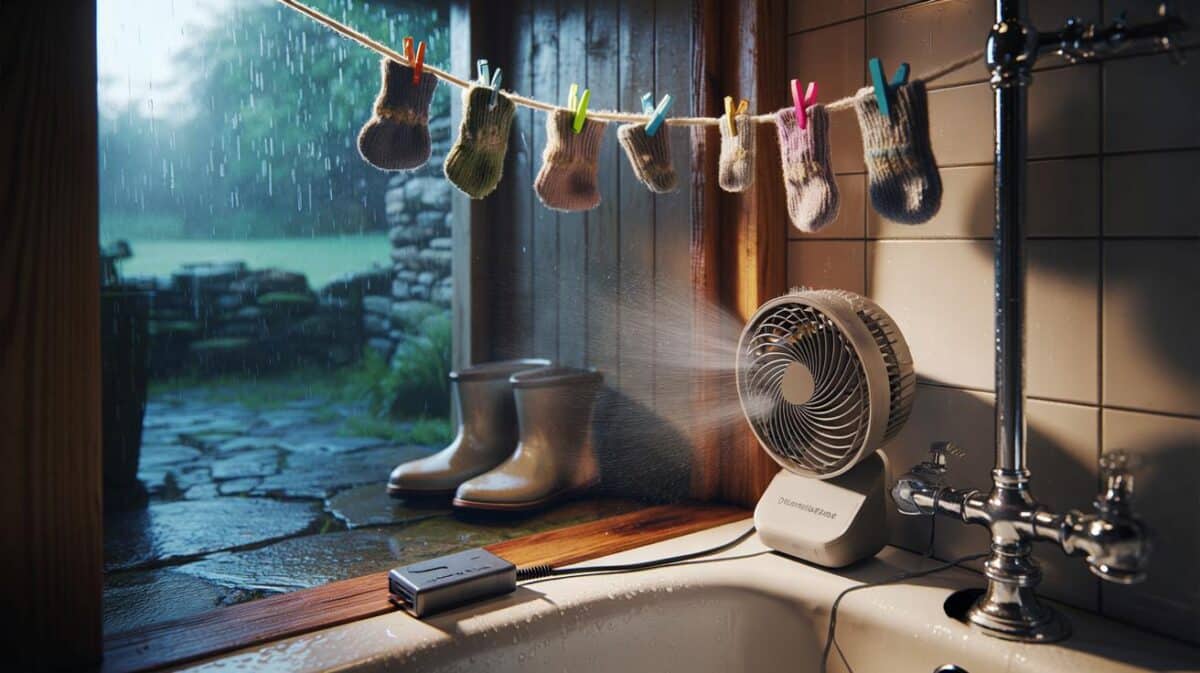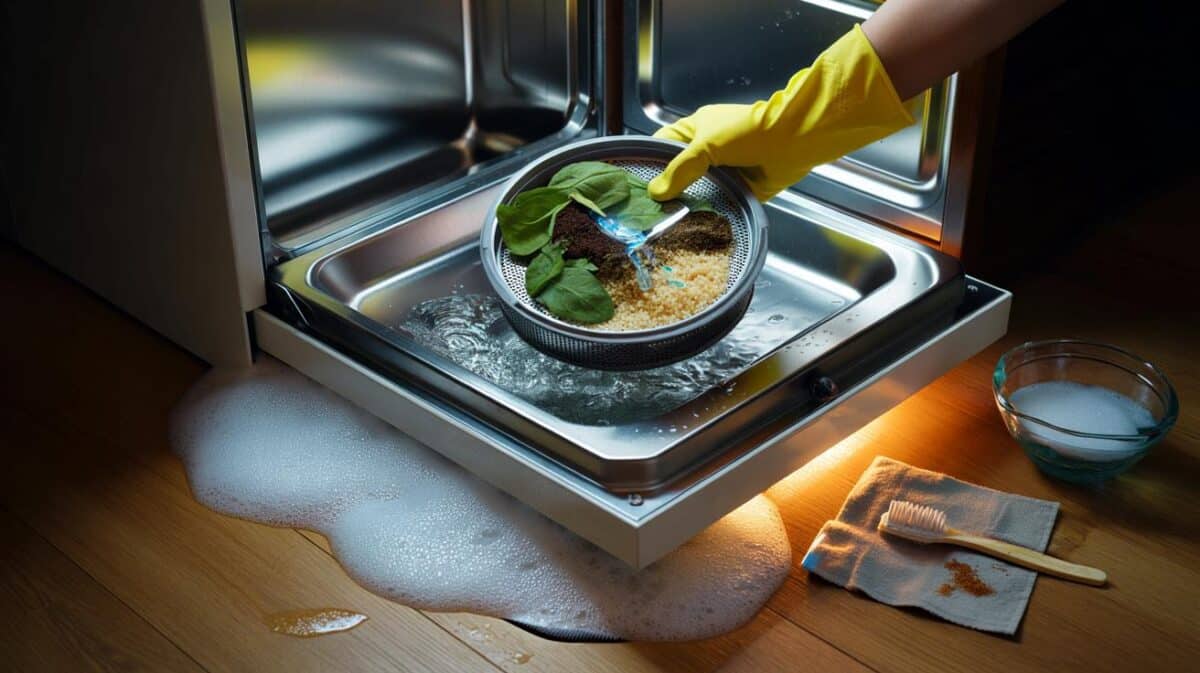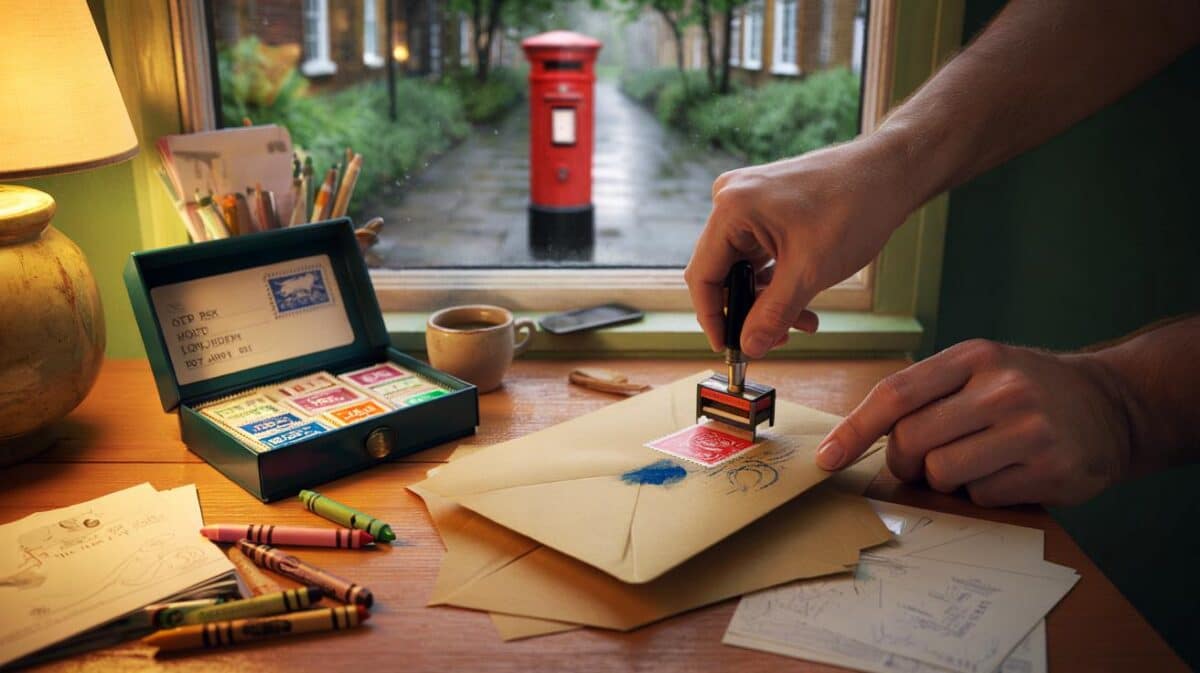It’s the money lines mums repeat because they want us safe — not rich, just safe. Some of those lines saved us. Some now cost us.
The bus judders along the high street, seats sticky from a day that ran long. A woman in a mustard coat murmurs to her daughter, “Always save for a rainy day, pet. Cash in the tin. No risks.” The girl nods, like lots of us did. I can hear my own mum at the Co‑op checkout, asking for a receipt “so we’re never caught out.” It’s a warm sound, that voice. It kept the lights on. It also kept us from flicking any new ones on. We’ve all had that moment when your phone screen shows your balance and you swear you did everything “right” — and still feel stuck. What if she was wrong?
The cherished advice that quietly backfires
Some money advice ages like a good coat; some shrinks in the wash. The worst offenders are the ones that felt safest then: **“Always buy a house as soon as you can.”** “Never use a credit card.” “Keep your savings ‘safe’ in cash.” Each line grew from the soil our mums stood on — high interest in the 90s, dodgy lenders, recession scars. Their aim wasn’t wrong. The map is.
Take the house mantra. In the 90s my aunt bought a semi for less than four times her salary and called it security. A teacher today might face eight to ten times. The numbers have flipped while the sentence never changed. I met Mason, 29, who drained his LISA and emergency fund to “get on the ladder”, then watched his boiler die and mortgage fix expire in the same month. He didn’t buy security. He bought fragility dressed as bricks.
Blanket rules about plastic are similar. A card can wreck you if it funds dinners you forgot you ate. It can also protect purchases with Section 75, build a credit score, bridge cashflow, and harvest 0% periods for planned moves. Pure cash feels pure safe, until inflation nibbles at it like moths through wool. A rainy day fund belongs in cash. Years of future you? That belongs in assets that grow faster than prices rise. Safety isn’t a place. It’s a mix.
The smarter swaps mums might love today
Start with a simple system your mum would recognise: jars. Digital ones. Pay comes in, skim percentages into pots you name like real life — Rent, Food, Travel, Fun, Gifts, Emergency, Investing. Automate these skims the day after payday so your “future you” eats first. Even £50 into a Stocks & Shares ISA counts. Add a rule that protects you, not just your bank: never spend next month’s rent. It’s a small guardrail with a big echo.
Next, update the old “don’t touch credit” line. Use one low‑limit card for bills and travel, pay it in full via direct debit, and track it in your budget app. If you carry a balance, park the pride and move it to a 0% transfer, then set a fixed monthly payment to clear it within the promo window. Let’s be honest: nobody does that every day. So make it so easy you can do it tired — reminders, auto‑payments, and a calendar note before the 0% ends.
Finally, redirect “keep it in cash” into a layered plan. Three to six months’ expenses in a high‑yield savings account. Then grow long‑term money inside wrappers that boost you — workplace pension with employer match, a Stocks & Shares ISA, a Lifetime ISA if you’re eligible. Small, boring, automatic. ***That’s*** the compounding most of us were missing.
“Mum taught me to be careful. Investing taught me to be consistent. The trick is to stay both,” said Ellie, 34, after turning her panic savings into an ISA habit.
- Quick swap: “Buy ASAP” → “Run a rent‑vs‑buy calc with fees, fixes, repairs, and job risk.”
- Quick swap: “No credit ever” → “One card, full repayment, use perks and protection.”
- Quick swap: “Cash is king” → “Cash for near goals, assets for far goals.”
- Quick swap: “Work hard, don’t ask” → “Negotiate, document wins, change jobs if the ladder is missing.”
A gentler money culture at home
Money talk in British families can turn the air brittle. We joke about it or go silent. Try a kitchen‑table truce: you bring your mum a brew, thank her for what her rules protected, and show her your updated map. “You taught me to save. I’ve found ways to make savings grow.” Then share one small win she can try too — a better savings rate, a bill you switched, a pension top‑up that gets free money from her employer. *I still hear her voice at the till.*
Stories shift us faster than spreadsheets. Tell her about the friend who rented on purpose to stay mobile for a dream job, then bought with a bigger deposit and a calmer head. Or the cousin who opened a LISA at 25 and landed a 25% government boost on every pound up to £4,000. Mums have brilliant radar for risk. Offer yours the bigger dashboard: risk isn’t just “investing bad”, it’s also “inflation eats, wages stall, fees nibble.”
If your mum’s greatest hits include “stick to one reliable job”, add a modern verse. Reliability now can mean multiple streams: salary, a small freelance retainer, dividends from a global index fund, rental of a spare room, a skill you rent by the hour. Not hustle culture, just resilience. Gift her a rule she’ll recognise: don’t bet the house. Spread the bets. **“Never talk about money at home”** becomes “talk kindly, compare choices, and keep receipts for yourself.” Big difference.
Every family carries money weather: storms, sunny spells, unfamiliar seasons. The worst advice was born in a different climate and it tried to keep us warm. We can keep the warmth and change the clothes. These swaps aren’t rebellious. They’re respectful to what our mums wanted — safety — and honest about where safety lives now. Share them, tweak them, then pass them down softer. Someone’s future kitchen will thank you.
| Key points | Detail | Reader Interest |
|---|---|---|
| — | Swap “cash only” for layered cash + investing, using ISA and pension wrappers. | Clear, actionable upgrade to a familiar habit. |
| — | Reframe home‑buying from urgency to maths: fees, fixes, career risk, and rate cycles. | Helps avoid regret purchases and buyer’s remorse. |
| — | Use credit as a tool: one card, pay in full, Section 75 protection, 0% with a payoff plan. | Demystifies credit without moral drama. |
FAQ :
- Is buying a home always better than renting?Not always. Owning brings fees, repairs and less flexibility. Run a rent‑vs‑buy calculator with your local prices, deposit size, rate fix length, job plans and emergency fund. If the maths or timing is off, rent on purpose while you build a bigger buffer.
- Are credit cards always bad?They’re risky in the wrong hands and powerful in the right setup. One card, paid in full by direct debit, can build credit, earn perks and give Section 75 protection. If you carry a balance, move it to 0% and set a fixed payoff before the promo ends.
- Is keeping savings in cash the safest move?Cash is safest for near‑term needs and emergencies. For long‑term goals, inflation erodes buying power. That’s where a diversified fund inside a Stocks & Shares ISA or pension can outpace price rises over time.
- How do I talk to my mum without starting a row?Lead with gratitude. Share a small win, not a lecture. “You taught me to save. I’ve found something that grows those savings.” Then show, don’t tell: a better rate you switched to, a pension match you unlocked, a simple pie chart.
- What’s a simple 30‑day starter plan?Day 1: name your pots and automate skims the day after payday. Day 7: open or boost an ISA. Day 14: set direct debit to clear your card in full. Day 21: collect all bills and switch one to a better deal. Day 30: review, raise investments by £10, and breathe.








